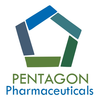
How sham patents are hurting the pharma industry
patent protection enables pharmaceutical companies to manufacture and market novel drugs, ensuring they make an initial profit from their discoveries. After a patent expires, other pharmaceutical companies are free to manufacture the drug as a generic or biosimilar. This encourages competition, making healthcare more affordable for the public.
The world of patents is complex, particularly in the pharmaceutical industry as innovation is crucial for the development of life-saving drugs. In this backdrop, concern is now growing over the emergence of sham patents, the integrity of the patent system, and the potential for abuse.
Sham patents, also known as “fraudulent” or “bad faith” patents, are obtained with deceptive practices or with the intent to hinder competition rather than to protect genuine innovations. In a strategic move, some pharmaceutical companies will file patents that contain misleading information, lack novelty, and are overly broad in their scope, in an attempt to maintain exclusivity and restrict market access for legitimate competitors.
The Orange Book and its role in the pharma industry
The Orange Book is used as a reference by pharmaceutical companies to register patents of approved drugs and it is a statutory requirement for the industry. Officially titled the Approved Drug Products with Therapeutic Equivalence Evaluations, it is published by the US Food and Drug Administration (FDA) and provides a comprehensive list of approved drug products – novel brands and generics.
“The purpose of the Orange Book process,” says Rohit Singla, a litigation partner at US law firm Munger, Tolles & Olsen, “including the triggering of patent litigation and a temporary stay of FDA approval, is to give generic drug companies patent certainty before coming to market.”


